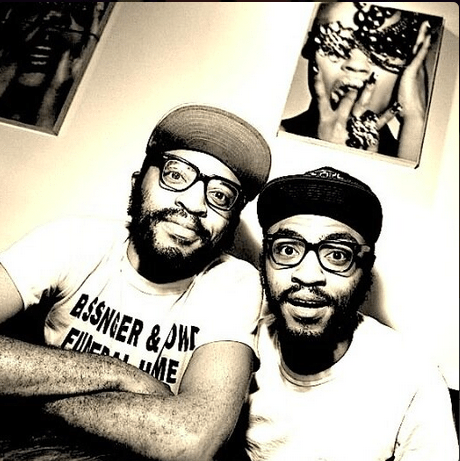Fort Greene Comedians, The Lucas Brothers, Discuss Comedy Going Beyond Race


On the heels of 31-year-old comedian Trevor Noah being tapped to replace Jon Stewart at the anchor desk of Comedy Central’s “Daily Show,” Fort Greene brothers Keith and Kenny Lucas were among the newest generation of comedians to speak with Vulture about the “a new wave” of black comedians, who reportedly are less at home in “traditional comedy clubs” and are more “nerdy.”
Known as the Lucas Brothers, the identical twins explained that comics such as Hannibal Buress, Eric Andre, Baron Vaughn and Marina Franklin show viewers that the “black male nerd comedian” archetype could be more mainstream than they’d anticipated.
“They want to be able to talk about everything — even black culture — but in a way that doesn’t confine them to just being considered black comics,” Keith Lucas said. . . “The desire is to be specific, but universal,” Kenny says.
Instead of “actively deal[ing] with racial inequities with “Black people are like this, white people are like that,’ we’re trying to shift away from that,” said Keith. Kenny explained that model as “confining.”
This doesn’t mean there aren’t race jokes or social commentary — jokes about racist white men watching porn or how black people have ownership over the word nigger — but simply that race manifests itself in a more oblique fashion.
. . .One of the Lucases’ favorite projects is their most recent: an episode of The Lucas Bros. Moving Co. called “Soul Food,” where the brothers compete in a soul food cook-off, but find themselves at a disadvantage because they had sold their souls to the devil so that they could beat Sub-Zero in Mortal Kombat. “That episode touches on what we’re trying to do with our comedy, which is dabble in the absurd, the surreal, but also pay respect to black culture,” said Keith. The episode was not about race, but it was not not about race, either.
. . .What is a black comic? What is the alternative black comic? What’s the typical black comic?” [Keith] mused. “There are people out there with black skin doing comedy, but does that make you a black comic? Is it what you talk about? Is it how you talk about it?”
“My thing is like, those questions are so hard, that it’s like, Fuck it,” said Kenny. “Let’s not put people in a box,” Keith added. “And let’s just say we’re doing comedy.”



